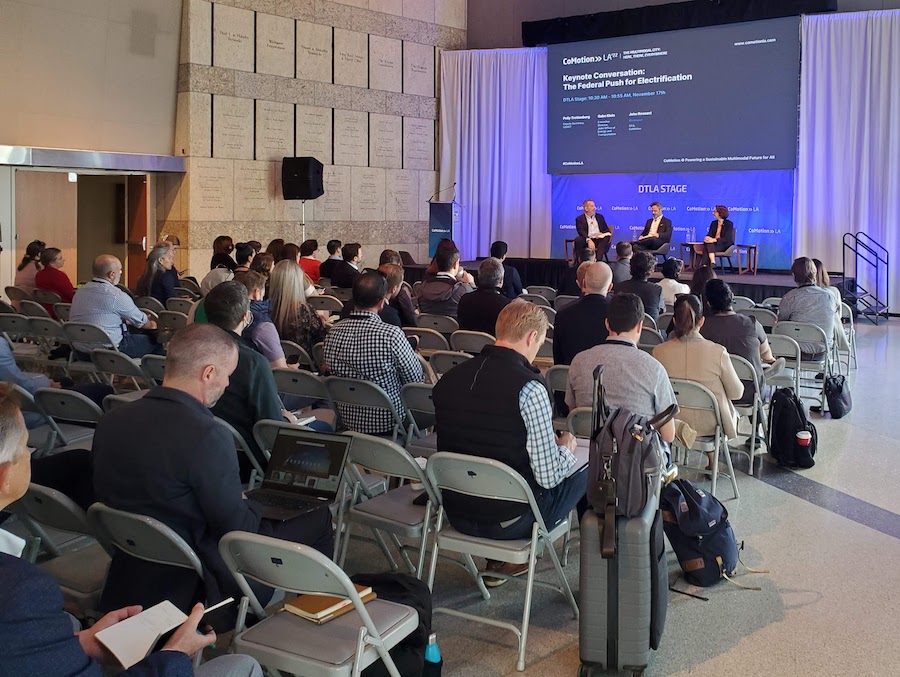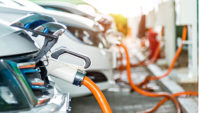Renewable energy and electric vehicles will "reinvent" the American economy, according to White House officials, and in a fractured political climate, infrastructure can still be a bipartisan effort.
“The exciting news about the infrastructure bill and the Inflation Reduction Act is these are multi-year bills and the funding is in place, the program designs are in place and it will be up to us to do a good job implementing them such that they will retain broad political support hopefully on both sides of the aisle,” said Polly Trottenberg, deputy secretary of the U.S. Dept. of Transportation, speaking to attendees of CoMotion LA in late November.
More than 2,000 transportation experts, policymakers, venture capitalists, and start-up companies gathered in Los Angeles for the sixth annual Comotion LA, a three-day event looking at the future of transportation.
Trottenberg and Gabe Klein, executive director of the Joint Office of Energy and Transportation keynoted the event, discussing the Infrastructure Investment and Jobs Act (IIJA), the Inflation Reduction Act, the new Republican-controlled House, and the federal government’s push for EVs and other renewable energy sources.
Trottenberg said one of the "nice things" about infrastructure bills is that “even in a very polarized political climate, infrastructure is still a relatively bipartisan issue and if we continue to do our jobs right we are going to continue to get support.”
Klein said with all this funding in place, the government is talking about “reinventing the entire economy—an economy that was basically built on the back of fossil fuels in the last 120 years—around renewable energy. So once the politicians, and it doesn't matter what color state it is, realize the financial fiscal impact of jobs and quality of life, I think a lot of these issues are going to go out the window.”
Klein said things like EV cars sales are currently on a "hockey stick graph" that is ready to "explode upward." He says there was a 60% increase in EV sales this year over last year, and last year there was 50% increase over the previous year. “The hockey stick is coming and the infrastructure we are putting in place in the states … is going to give people that are nervous, security and all of these folks are going to fall in line." He added that as the switch to EVs continues, internal combustion engine vehicles "are going to be a thing of the past and not worth anything."
Trottenberg said part of the legislation required that all 50 states submit an EV charging plan to the U.S. DOT and when it came time to do this, “every state—blue and red—stepped up and even as we have a divide in Congress, when we get to the state level, states want in on infrastructure, and it is bipartisan and the issue doesn't fall along the lines you might think.”








